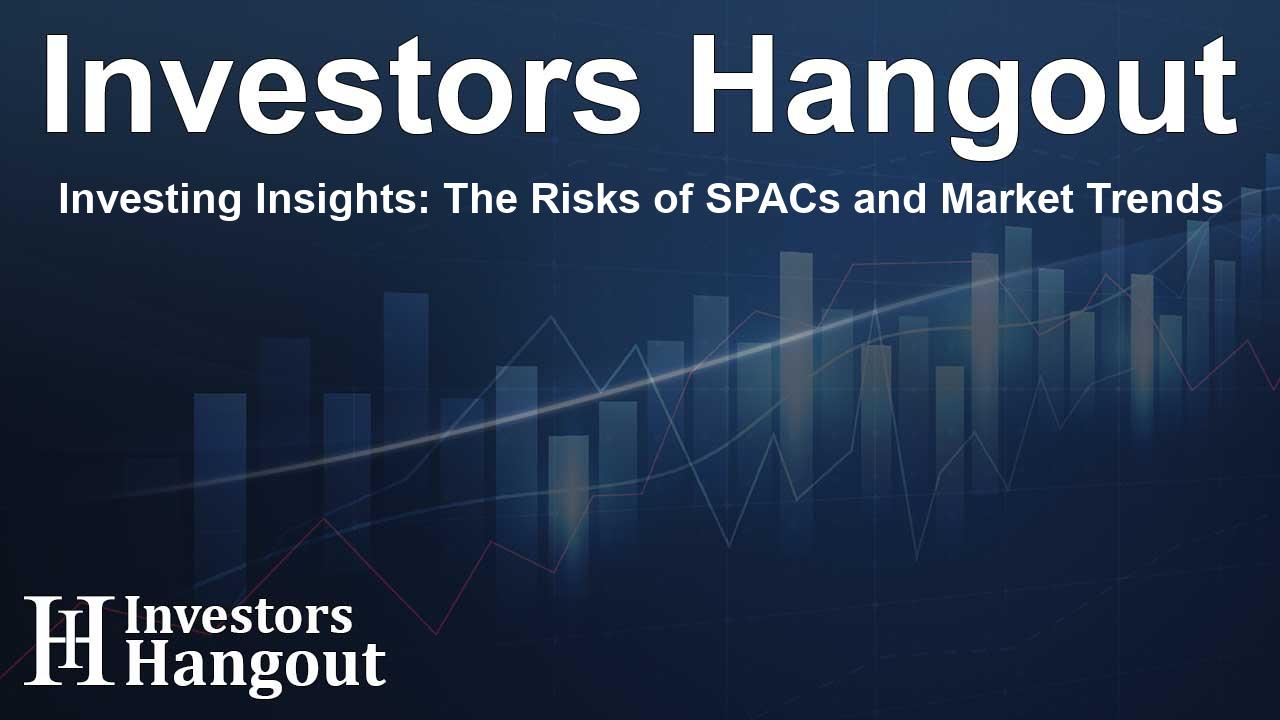Investing Insights: The Risks of SPACs and Market Trends

Concerns About SPACs in Today’s Market
Investor Ross Gerber, representing Gerber Kawasaki Wealth and Investment Management, is vocal about his negative stance towards SPACs, which stands for Special Purpose Acquisition Companies. His remarks appear targeted, especially at high-profile figures like Chamath Palihapitiya, who has recently launched a new SPAC deal worth $250 million. This offer focuses on influential sectors including artificial intelligence, clean energy, and U.S. defense technology, areas Palihapitiya describes as crucial for sustaining American dominance.
The Dangers of Investing in SPACs
Gerber’s warning, “Avoid SPACs like the plague,” comes in response to the ongoing SPAC market fluctuations. A recent study highlighted that investors who placed a $100 investment across each of Palihapitiya’s previous SPACs are now facing significant losses, recording a downturn of 73% on their investments. This stark reality is compounded by the performance of earlier SPACs, which have not fared well, prompting Gerber’s caution.
Wall Street's Tactics and Investor Perspective
Gerber’s criticisms date back to the peak of SPAC popularity in 2021. He emphasizes that SPACs symbolize a strategy employed by Wall Street to extract profits from individual investors. “SPACs are another Wall Street fleecing of individual investors,” he asserted. This sentiment resonates with many retail investors who feel sidelined in the chase for investment returns.
Examining Specific Examples
A case that Gerber highlights is Churchill Capital Corp IV ($CCIV), a SPAC that merged with Lucid Group Inc. The stock was valued at around $30 during the initial public offering, but Wall Street investors benefited from purchasing shares at just $10 through the PIPE, or Private Investment in Public Equity mechanism. This arrangement allows significant financial entities to secure favorable terms, raising questions about equity and fairness in the market.
The Cost of Investment in Lucid Group
Currently, shares of Lucid Group have depreciated by approximately 96.3% since reaching an all-time high of $58.05 in February 2021. Such drastic declines have led many investors to rethink their strategies and the potential pitfalls associated with SPAC investments.
The Broader Context of Market Opportunities
As discussions surrounding SPACs continue, Gerber also directs attention to newer market opportunities. The collapse of previous SPACs signals a need for investors to seek more reliable avenues. With ongoing innovations in sectors like green technology and artificial intelligence, investors could find more sustainable long-term growth options outside of SPACs.
Conclusion: Navigating the Investment Landscape
Pursuing investments in an ever-evolving market can be daunting, especially with cautionary tales surrounding SPACs. Gerber’s insights serve as a guide for both novice and experienced investors. By weighing the risks and considering alternative investments, one can approach the marketplace with greater confidence and clarity.
Frequently Asked Questions
What are SPACs?
SPACs, or Special Purpose Acquisition Companies, are investment vehicles that raise capital through an IPO to purchase or merge with an existing company.
Why does Ross Gerber advise against SPACs?
Gerber believes SPACs are often used as tools by Wall Street to exploit retail investors, noting significant losses associated with many SPAC investments.
What is PIPE financing?
PIPE, or Private Investment in Public Equity, allows institutional investors to purchase shares in a public company at a discount, often before a SPAC merger is completed.
How have SPACs impacted investor returns?
Many investors in SPACs have experienced substantial losses, with reports indicating a 73% downturn on average investments spread across various SPACs.
What sectors are currently attractive for investments?
Sectors such as artificial intelligence, clean energy, and defense technology are increasingly viewed as promising due to their potential for growth and innovation.
About The Author
Contact Henry Turner privately here. Or send an email with ATTN: Henry Turner as the subject to contact@investorshangout.com.
About Investors Hangout
Investors Hangout is a leading online stock forum for financial discussion and learning, offering a wide range of free tools and resources. It draws in traders of all levels, who exchange market knowledge, investigate trading tactics, and keep an eye on industry developments in real time. Featuring financial articles, stock message boards, quotes, charts, company profiles, and live news updates. Through cooperative learning and a wealth of informational resources, it helps users from novices creating their first portfolios to experts honing their techniques. Join Investors Hangout today: https://investorshangout.com/
The content of this article is based on factual, publicly available information and does not represent legal, financial, or investment advice. Investors Hangout does not offer financial advice, and the author is not a licensed financial advisor. Consult a qualified advisor before making any financial or investment decisions based on this article. This article should not be considered advice to purchase, sell, or hold any securities or other investments. If any of the material provided here is inaccurate, please contact us for corrections.
